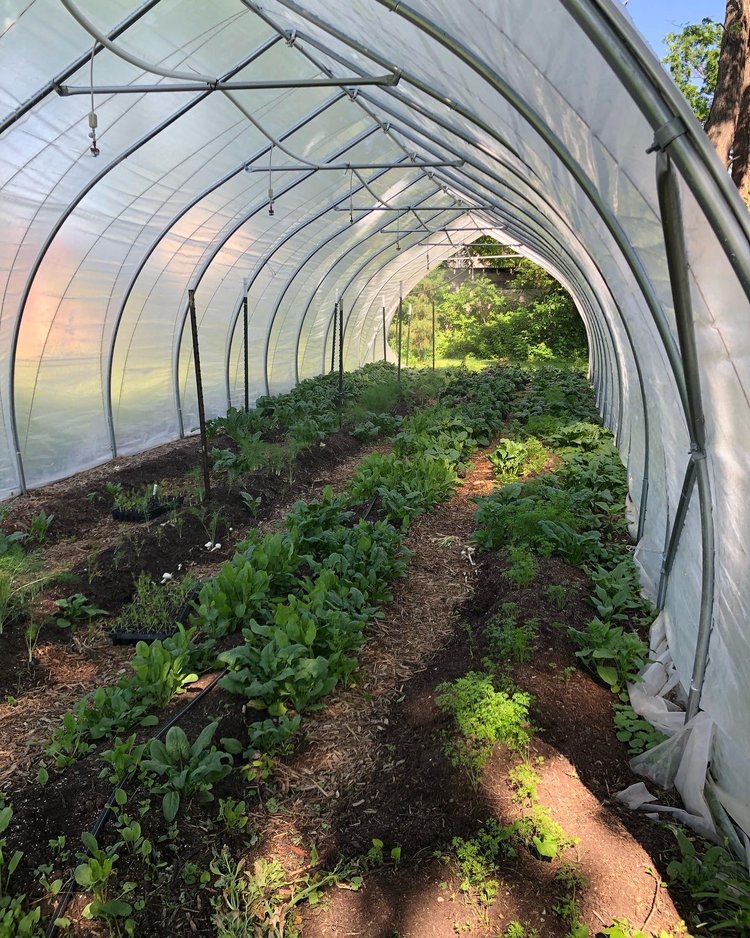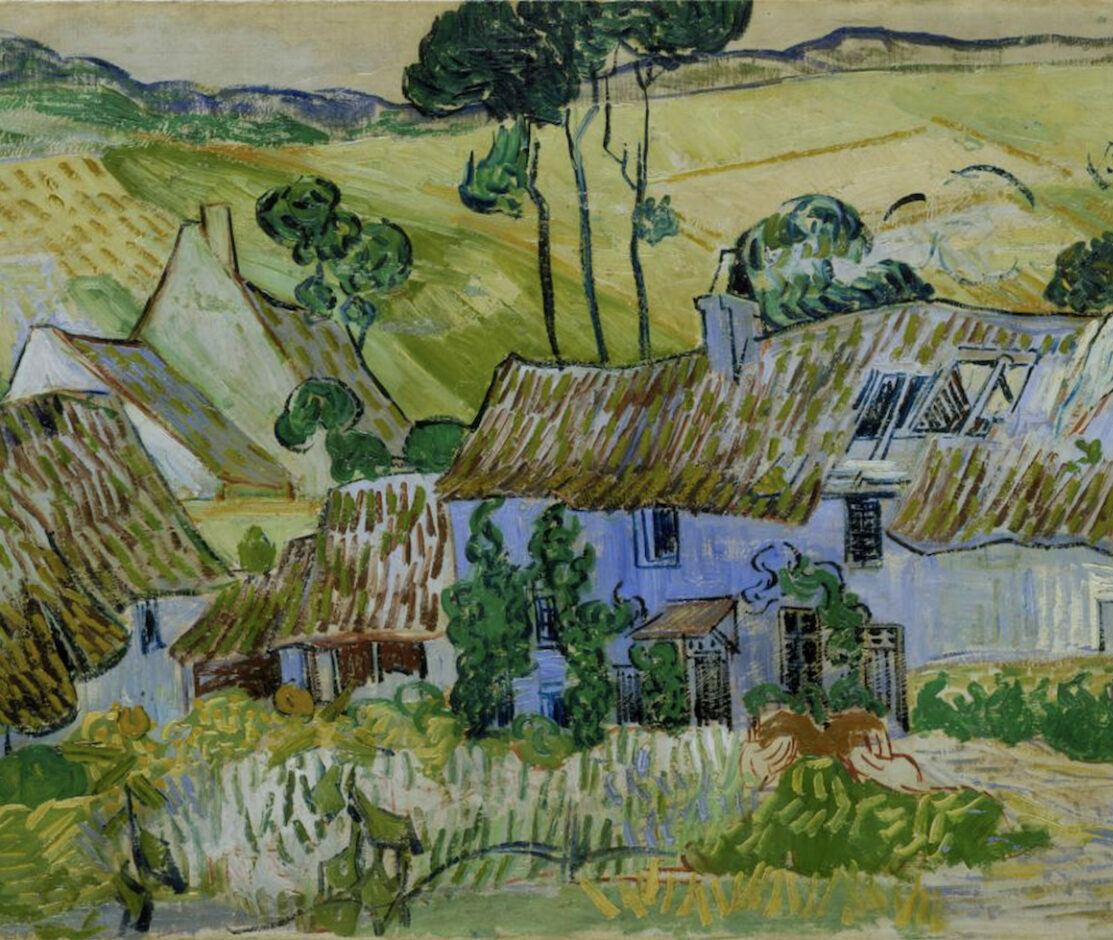The Maurin Academy came into being as a 501(c)(3) nonprofit organization in 2022 out of a gathering of friends (Spencer Hess, Jakob Hanschu, Laurie Johnson, Emily Larner and Bryant Macfarlane), which itself came out of a longstanding study group. We met in Manhattan, KS, and dedicated ourselves to offering alternative online public education and fostering local community. Our mission was inspired by the Catholic Worker movement, and especially its founders, Peter Maurin and Dorothy Day. Maurin was greatly influenced by Catholic Social Teaching (CST) on how we should order ourselves socially and economically to live fully Christian lives. He brought that teaching to Dorothy Day, changing her life forever. Working during the Depression, Maurin and Day took seriously papal teachings to be critical of existing capitalism because of the harm it did to workers, society, religion, and the environment. What they saw before their eyes in New York City were workers degraded and instrumentalized in the industrial machine before being cast aside as worthless for “objective” financial reasons. Day was also informed by a prior self-education in anarchist socialist thought and continued to draw on that tradition even after she converted to Catholicism.
Catholic Worker values include cultivating solidarity with the poor, rejecting the desire for material goods, feeding ourselves and others locally via our own labor, and participating in “roundtable discussions for the clarification of thought” that include everyone regardless of their economic class or station in life. Maurin conceived of “agronomic universities,” farms in which people from various walks of life could work together and learn from each other, both informally and through ongoing discussions about how the world worked and what should be done. Though the agronomic university idea was a part of the original vision that largely failed for Maurin, other farms since that time have been more successful, and there is growing interest in them.
We take to heart Maurin’s call to foster the three C’s of “cult, culture and cultivation.” We want to do this in a way accessible for 21st-century people who get much of their information and even social engagement online. Part of the puzzle we want to solve is how to join that tendency to genuine local action and face-to-face friendship. We are not nostalgic in our approach, and we do not reject technology per se, though we are deeply critical of modernity and the harm of the prevailing dominance of machines and technocracy over man. All of us are united in concern for our environment and our food system. We agree that industrial agriculture is a chief cause not only of climate change but an unacceptably fragile food system which leads to physically and mentally sick people. We also agree that our economy and lifeways are wreaking havoc on the primary social units of family and community. Some of us are more religious than others, and we come from different Christian backgrounds. Some are more in tune with a Marxian analysis of economics, some with Catholic social teaching. But we all agree that society suffers from its instrumental attitude towards education and that a liberal education is key to changing our lives for the better, and we are all committed to taking real steps towards a more ecologically sustainable existence and towards a renewal of human values and a truly human life. A liberal education means learning beyond our comfort zone.
We offer online classes under Maurin’s framework of “Three Cs.” We have offered sessions on Christian Anarchism, Distributism, Agricultural Biotechnology and its impact, Pope Francis’s Laudato Si: On the Care of Our Common Home, and most recently a class on the Technological Sublime and its impact on American politics and culture. We have started up a Marx reading group that is taking people through Capital Vol. 1, and we will soon start a Communio: International Catholic Review study circle that deals with ressourcement theology and adjacent ideas. Spencer Hess is currently teaching a course on ressourcement theologian Romano Guardini and his book The End of the Modern World. In the summer we will have a class on The Religion of Technology. In the Fall, we will be offering sessions on Wendell Berry’s The Unsettling of America, among other offerings. We are also working on hosting sessions on the life and ideas of Day and Maurin and the Catholic Worker movement. All our classes involve much discussion with participants, and we learn from them. In addition to our classes, we offer “Dustbowl Diatribes,” a publicly available podcast hosted by Laurie Johnson and Spencer Hess on issues of environment, food, economy, modernity, and religion. Laurie Johnson has long hosted Political Philosophy, a YouTube channel and podcast devoted to a liberal education in political and economic ideas which is now under the Maurin Academy umbrella.
In addition to all this, we have an “on the ground” component in Kansas City, MO: The JPII Catholic Worker Farm, inspired by St. John Paul II’s continued articulation of CST. It is our agronomic university in progress. This farm resides in Northeast Kansas City and consists of approximately ½ acre of open growing space, 3 houses, 3 yards, a high tunnel, and a small-scale chicken and duck operation. It is in an area of the city in which poverty and homelessness are common, and with neighborhoods still thriving alongside urban decay. This farm is headed by Maurin Academy co-founders Spencer Hess and Emily Larner, who both converted to Catholicism after their encounter with the Catholic Worker way of life and CST. The farm had existed for several years prior as an attempted farming collective. Spencer and Emily’s goals in farming are to feed themselves and help feed those in the immediate vicinity, cooperate with their neighbors, and demonstrate how food can be grown and community fostered in an environment that is stressed economically, socially, and environmentally. The JPII farm is working on building local relationships with Kansas City’s Cathedral of the Immaculate Conception, Catholic Workers, and other similar local groups. We plan on bringing more and more information about how to grow food and successfully cooperate from the experience of the JPII farm.

The work of Spencer and Emily is useful to the rest of us because it demonstrates the real-life difficulties of trying to change one’s way of life to be more in tune with Christian teachings, especially CST. We have discussed these difficulties on Dustbowl Diatribes and will continue to do so. Only if we are clear-eyed about what it takes to create a fuller community and a more meaningful way of life will we have any chance of growth in that direction. Too often the choice to homestead or locally farm is expressed in an overly sanguine way. In reality, it is extremely difficult, if not impossible, to fully feed oneself through one’s own labor, to cooperate with others effectively, and to integrate with churches and other organizations successfully. Oftentimes society signals, especially to younger people, that all our hopes are put in them to solve our social and environmental problems–but when they actually try to do so we often don’t recognize or support their efforts strongly enough for them to succeed.
We use the experience of the JPII farm not only to learn and improve over time but to inform our audience of the realities and pitfalls of attempting this way of life. We have learned the hard way that small steps and incremental improvements have to be treated like great victories and that to rely on Christian hope is the essence of wisdom. We struggle with our own enmeshment in the current economy, the fact that we live within a thoroughly liberal and individualistic society that conditions people–even when they have the best of intentions and share the same values–to pull back into self-protection whenever they feel their personal security threatened.
There are two ways (for now) that people outside our local communities can join the Maurin Academy—by supporting us on Patreon or by signing up for various course offerings on Eventbrite. Patreon subscribers can choose from various levels, but we recommend either the Worker-Scholar or Salt of the Earth levels. For $5 a month they will receive all our work in recorded format, and for $10 per month they will receive all that plus access to all Academy live sessions. Those actively involved in the Catholic Worker movement are especially invited to participate in any of our sessions and can do so free of charge by contacting us at maurinacademy@gmail.com. While we offer our courses at accessible rates, we depend on larger charitable donations to support our mission. Our website has information about all of this, plus our monthly newsletter. We will soon have a store where people can purchase past courses to aid in personal development or group discussion, but Patreon subscribers at either of the levels mentioned get access to all our previous recorded sessions as well. All proceeds go to keeping our experiment afloat, and we are always open to new ideas for participation!
Those interested in meeting, volunteering with, or otherwise supporting the John Paul II Catholic Worker Farm can reach Emily and Spencer at jpiicatholicworkerfarm@gmail.com.
Image via Flickr: Vincent Van Gogh, “Farms near Auvers,” (1890).



